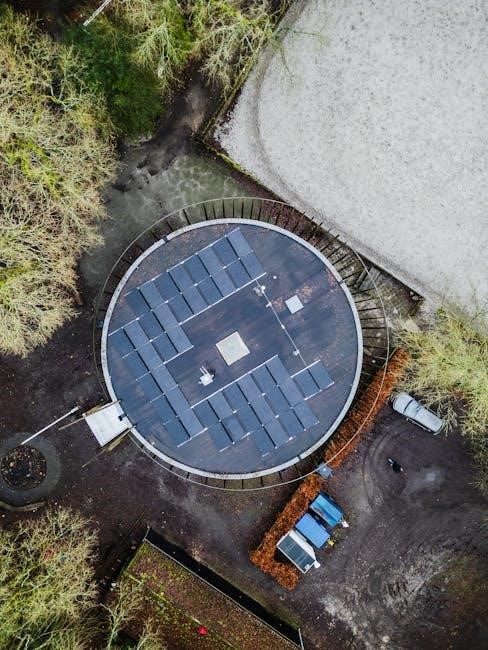
Executive Summary
Overview of the Solar Energy Business Plan
This solar energy business plan outlines a strategic approach to leveraging renewable energy solutions, focusing on solar panel installations, energy efficiency, and sustainable growth opportunities.
This solar energy business plan provides a comprehensive roadmap for launching and scaling a renewable energy venture, focusing on solar panel installations, energy storage solutions, and maintenance services. It outlines target markets, financial projections, and operational strategies to ensure sustainability and profitability. The plan emphasizes government incentives, technological advancements, and partnerships to drive growth. By addressing market demands and environmental concerns, the initiative aims to deliver clean energy solutions while promoting energy efficiency and reducing carbon footprints. This approach ensures long-term viability and aligns with global efforts to transition to renewable energy sources.
Market Analysis
The solar energy market is experiencing rapid growth due to increasing demand for renewable energy sources. Government incentives and technological advancements are driving this trend, making solar solutions more efficient and affordable for both residential and commercial sectors.
Industry Overview and Trends in Solar Energy
The solar energy industry is experiencing significant growth, driven by increasing demand for renewable energy solutions. Governments worldwide are implementing policies and incentives to promote solar adoption, reducing carbon footprints and enhancing energy efficiency. Technological advancements, such as improved photovoltaic cells and energy storage systems, are making solar power more accessible and cost-effective. Emerging markets, particularly in Asia and Africa, are witnessing rapid solar deployment, while developed nations continue to expand their renewable energy capacities. This trend is further supported by strategic partnerships and innovations in solar panel design and installation processes.
Business Model
Revenue Streams and Cost Structure
The business model focuses on generating revenue through solar panel installations, maintenance services, and energy storage solutions, while minimizing costs through efficient supply chain management and technology integration.
The solar energy business plan generates revenue through solar panel sales, installation services, and recurring maintenance contracts. Additional income comes from energy storage solutions and government incentives. Costs include initial capital expenditures for equipment and labor, ongoing operational expenses, and marketing efforts. The model emphasizes reducing costs through efficient supply chain management and technology integration. By leveraging renewable energy incentives and optimizing resource allocation, the business ensures profitability while promoting sustainability. This structure supports long-term growth and scalability, aligning with environmental goals and market demands for clean energy solutions.
Products and Services
The company offers high-efficiency solar panels, energy storage systems, and comprehensive installation and maintenance services, ensuring reliable renewable energy solutions for residential and commercial clients.

Solar Panel Installation, Maintenance, and Energy Storage Solutions
Our solar panel installation services include customized design and turnkey solutions for residential and commercial properties. We provide expert installation, ensuring optimal energy performance. Maintenance services include regular inspections and repairs to maximize system efficiency. Energy storage solutions, such as advanced battery systems, allow clients to store excess energy for later use, reducing reliance on the grid. These integrated offerings ensure a seamless transition to renewable energy, enhancing energy independence and sustainability for our customers.

Technology and Innovation
Our business leverages cutting-edge advancements in photovoltaic technology, energy storage systems, and IoT-enabled monitoring solutions to optimize solar energy efficiency and performance for clients.
Advancements in Photovoltaic Technology and Energy Efficiency
Recent advancements in photovoltaic technology, such as high-efficiency solar panels and bifacial cells, are driving greater energy output and reduced costs. Energy storage solutions, including advanced battery systems, enhance grid stability and reliability. IoT-enabled monitoring systems optimize performance and predictive maintenance, ensuring minimal downtime. These innovations are central to our business strategy, enabling us to deliver scalable, efficient, and sustainable solar energy solutions. By integrating cutting-edge technologies, we aim to maximize energy efficiency and reduce environmental impact, aligning with global renewable energy goals and industry standards.

Financial Plan
The solar energy business plan requires significant capital investment, secured through government incentives, private equity, and loans. Profitability projections indicate strong returns aligned with environmental goals.
Capital Requirements, Funding Sources, and Profitability Projections
The solar energy business plan requires substantial upfront capital for infrastructure, technology, and workforce training. Funding sources include government incentives, private equity investments, and green financing options. Profitability projections are promising, with increasing demand for renewable energy solutions. Initial capital expenditures are offset by long-term revenue streams from solar installations and energy storage services. Strategic partnerships and subsidies further enhance financial viability. The business aims to achieve a strong return on investment within five years, supported by rising energy costs and favorable regulatory frameworks. Sustainability initiatives also contribute to long-term profitability and market competitiveness.

Sustainability and Environmental Impact
The solar energy business plan emphasizes reducing carbon footprint through renewable solutions and recycling initiatives, promoting environmental sustainability and supporting a greener future.
Carbon Footprint Reduction and Recycling Initiatives
The solar energy business plan prioritizes carbon footprint reduction through renewable solutions, aiming to minimize environmental impact. Recycling initiatives focus on solar panel lifecycle management, ensuring sustainable practices. Partnerships with recycling facilities and adherence to circular economy principles highlight the commitment to eco-friendly operations. Additionally, the plan incorporates energy-efficient technologies to further reduce emissions, aligning with global sustainability goals. By integrating recycling and carbon reduction strategies, the business promotes a greener future while addressing environmental challenges effectively.

Growth Strategy
The solar energy business plan focuses on expanding into new markets, forming strategic partnerships, and enhancing competitiveness through innovative solutions and scalability to drive long-term growth.
Market Expansion and Strategic Partnerships
The solar energy business plan emphasizes market expansion through strategic partnerships with local governments, utility companies, and technology providers. Collaborations with entities like Masdar, Sarawak Energy, and Gentari highlight opportunities for joint ventures in renewable energy projects. By targeting emerging markets with high solar potential, the company aims to diversify its geographical presence. Partnerships enable access to advanced technologies, local expertise, and funding sources, ensuring scalability. Additionally, aligning with government incentives and clean energy policies accelerates market penetration. This approach fosters sustainable growth, enhances competitiveness, and strengthens the company’s position in the global solar energy sector while promoting environmental sustainability.
Regulatory and Legal Considerations
Navigating government policies, incentives, and compliance requirements is crucial for solar energy businesses. Adherence to local and national regulations ensures smooth operations and supports growth initiatives effectively.

Navigating Government Policies and Incentives
Understanding and leveraging government policies and incentives is vital for solar energy businesses. Many nations offer tax credits, grants, and rebates to encourage renewable energy adoption. For instance, the U.S. Investment Tax Credit (ITC) provides significant financial benefits for solar projects. Similarly, countries like Singapore and Thailand have implemented policies to accelerate solar deployment, such as the Singapore Green Plan 2030 and Thailand’s National Energy Plan. Staying informed about these incentives and ensuring compliance with local regulations can significantly enhance project viability and profitability while supporting sustainable energy goals.
Implementation Timeline and Future Outlook
The solar energy business plan outlines a clear path to scalability and sustainability. Next steps include securing funding, forming strategic partnerships, and launching pilot projects to demonstrate viability and impact.
The solar energy business plan includes a phased implementation timeline, starting with market research and partnership development within the first six months. Pilot projects will launch in year one, focusing on high-impact locations. By year three, the company aims to scale operations, expanding solar installations and energy storage solutions. Long-term goals include entering new markets and achieving carbon neutrality by 2035. Financial projections indicate strong ROI potential, with revenue growth expected to surpass initial investments by year five. Strategic collaborations and continuous innovation will drive sustainable growth, ensuring the company remains a leader in the renewable energy sector.
